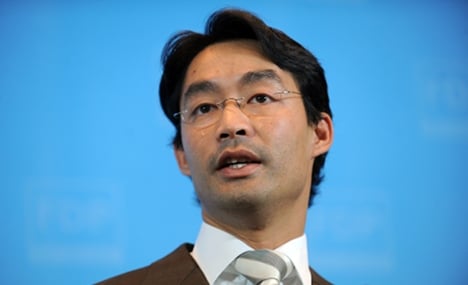In what initially seemed to be a contradiction of Chancellor Angela Merkel and French President Nicolas Sarkozy’s recent call for such a tax, he said he would only back it if it applied to all 27 European Union countries – not just the 17 members of the eurozone.
Rösler, whose Free Democratic Party is the junior coalition partner of Merkel’s Christian Democratic Union, threatened to withhold support of the plan.
“We would only give our agreement to a transaction tax, if at all, only if it was applied in all 27 EU countries,” he told the regional daily Stuttgarter Zeitung.
He said the eurozone countries should not be put at a disadvantage to other EU countries, several of which, most notably Britain, have said they would not implement such a tax.
The government has long included the concept of taxing finance transactions, with Finance Minister Wolfgang Schäuble even including €2 billion income in his medium term financial planning – from 2013.
Rösler said it was now the job of the finance ministers to develop a concept for all 27 EU member states, firmly handing responsibility to his CDU colleague, according to Der Spiegel.
The magazine said that there seemed to be little difference between his attitude and that of Merkel, saying that government insiders were signalling that the suggestion for the eurozone was intended to revive the debate of imposing the tax throughout the EU.
Gathering as many supporters for the concept within the eurozone would be the first stage in exerting pressure on other EU members, the magazine suggested.
Rösler has also recently clearly mapped out his party’s opposition to the idea of eurobonds, saying a meeting of the party’s leadership had ruled them out, and that he had communicated this to Merkel before her meeting with Sarkozy.
Sarkozy, who met with Merkel this week in Paris, told media later that “German and French finance ministers will put a joint proposition for a tax on financial transactions on the table of European institutions from next month.”
AFP/The Local/hc



 Please whitelist us to continue reading.
Please whitelist us to continue reading.
Member comments